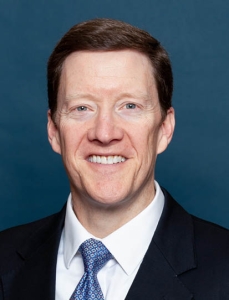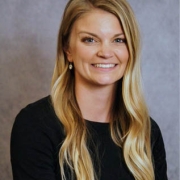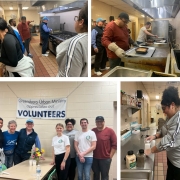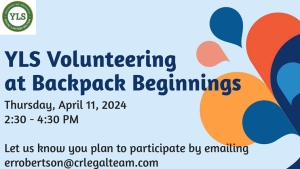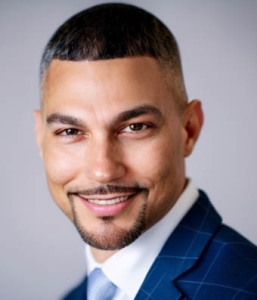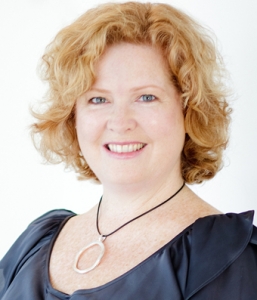
Camille Stell
is President and CEO of Lawyers Mutual Consulting & Services. Continue this conversation by contacting Camille at camille@lawyersmutualnc.com
The American Red Cross reports that the United States is facing an emergency blood shortage, with the lowest number of people donating blood in 20 years.
People report a variety of reasons for not donating blood – they aren’t aware of the need, they struggle to make time in their schedule, or they are nervous about the process, they have a fear of needles or a fear of blood.
Blood donation began dropping in 2022 while the pandemic was ongoing, but blood donor numbers are on their way back to pre-pandemic levels.
My Story
My dad was a life-long blood donor. He worked less than a mile from the local Red Cross office and he would regularly donate during his lunch hour. When I was in high school and a blood drive was scheduled for our gym, I thought I would give it a try. The phlebotomist told me I had small veins, and I would probably bruise, but the process was easy enough. From that point forward, whenever a blood drive took place where I was and it was convenient, I participated. This meant an annual contribution or every other year event, and I felt good about helping.
During the pandemic, I was looking for ways to make a difference and blood donation became one of my projects. I downloaded the Red Cross App and I actively searched for opportunities. I began giving blood every quarter. The Red Cross App encouraged me to be more engaged in the process. I get reminders when I’m eligible to donate and I can track my blood journey.
For example, I gave blood on January 24th of this year. The app notifies me as my blood makes the trip towards saving a life. Within days of donation, my blood was processed and tested. My blood was spun in a centrifuge to separate the transfusable components – the red cells, platelets, and plasma. When my blood passed all the tests, my red cells were stored in a refrigerator at 42.8 degrees for up to 42 days.
Finally, my blood was delivered to the Hospital of the University of Pennsylvania in Philadelphia where it was used to save up to three lives. My blood has traveled up the East Coast as far as Pennsylvania, as far south as Georgia and across North Carolina.
If your preference is for your blood to stay local, there are other organizations such as The Blood Connection that keep the donations in your geographic location.
Who Needs Blood Donations?
Most donations are needed for cancer patients and trauma patients such as those involved in car accidents. Blood transfusions are also needed during childbirth. In the U.S., one out of every 83 mothers delivering babies need blood transfusions.
Why is a Diverse Blood Supply Important?
More than 100,000 people in the U.S. suffer from sickle cell disease which disproportionately affects individuals of African descent. A single patient with sickle cell disease can require thousands of blood transfusions throughout their lifetime.
Patients with sickle cell disease rely on regular blood transfusions to prevent complications such as organ and tissue damage, severe pain, and strokes. Frequent transfusions can make finding compatible blood types more difficult when patients develop an immune response against blood from donors that are not closely matched to the recipient. One in three African American blood donors are a match for individuals with sickle cell disease often saving them from severe complications.
My Goal
While 62% of the population is eligible, only 3% of U.S. adults donate blood. Of those who give, individuals on average donate only 1.8 times per year. While I’ve given quarterly for the past three years, my goal is to increase to five donations this year. The maximum you can donate is six times per year – every eight weeks. I’ve already searched out donation spots in my area and have marked my calendar through August.
Donors must be 17 years and older, weigh at least 110 pounds and be in good health. Prior to donating, you should be fully hydrated, have eaten a full meal including iron rich foods, and have enjoyed some form of exercise. I take a brisk walk and drink water all morning before donating.
Make sure you have your photo ID with you as well as your medication list. You can save time by completing the RapidPass questionnaire via the Red Cross App on the day of your appointment.
When I arrive, a Red Cross team member will take my temperature, pulse, blood pressure and hemoglobin level. I must answer a few questions in addition to the RapidPass documentation, then I’m ready to donate. It typically takes me 20 minutes to donate once I’m on the donation table, though times vary among individuals.
I typically donate at churches or community centers. In January I donated in Zebulon, and the local middle school provided student volunteers who greeted donors, made nametags (and decorated them!), and provided us with snacks afterwards. There’s usually music playing and a sociable vibe. I always have a podcast ready for listening, but I usually engage in conversation with the employees and other donors instead.
Afterwards, donors are encouraged to rest for 15 minutes at the donation location with a snack and water or juice which is provided. Avoid alcohol over the next 24 hours and avoid heavy lifting or vigorous exercise for the rest of the day.
Be a Donor or Host a Blood Drive
I would encourage you to become a blood donor. Download the Red Cross app or go online and find a donation site near you. Invite a friend to join you for support as well as double the donation. Or even better, encourage the Greensboro Bar Association, Elon Law School, or your own law firm or company to host a blood drive. Usually, you only need to provide the location, the Red Cross provides everything else.
Help reduce the blood shortage, increase the number of blood donors and donations per donor, and save lives at the same time.
Camille Stell is the President of Lawyers Mutual Consulting & Services and the co-author of the book, RESPECT – An Insight to Attorney Compensation Plans available from Amazon. Continue this conversation by contacting Camille at camille@lawyersmutualconsulting.com or 800.662.8843.

